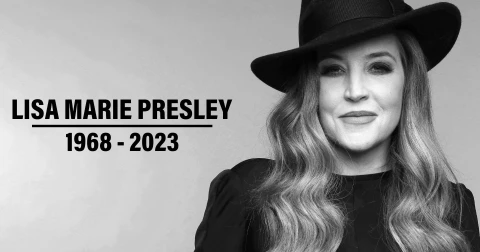Lisa Marie and me
Another celebrity death and another lesson in estate planning mistakes. Lisa Marie Presley, the recently deceased daughter of Elvis Presley is the focus of a recent case before the Los Angeles Superior Court. The plaintiff is Lisa Marie’s mother, Priscilla Presley. The lawsuit focuses on estate planning basics. Did Lisa Marie properly sign and execute her trust?
Lisa Marie originally named her mother to serve as co-trustee. A 2016 document purported to amend a trust created by Lisa, removed Priscilla as the co-trustee, Priscilla argues that the amendment is invalid. Presley states the amendment replaced her and Lisa Marie’s former business manager as co-trustees with her children Riley and Benjamin Keough (the latter of whom died in 2020).
Priscilla Presley pointed out several problems with the amendment. Priscilla averred that she was never notified that she had been replaced, her name was misspelled, her daughter’s signature was ‘inconsistent’ with her usual autograph, and the amendment was neither witnessed nor notarized. The case demonstrates several basic guidelines for estate planning you should know.
Follow the rules you created
The larger lesson is that Estate planning must be meticulous. The trust document required Lisa Marie to notify Priscilla if she was replaced as a co-trustee. Priscilla says that never happened. Lisa Marie should have properly documented the change, with a written notice and proof of mailing. If Lisa Marie had an attorney draft the amendment, then her lawyer failed to follow up.
This is where having an attentive and thorough attorney helps. Skilled attorneys spot mistakes and interpret legal language, giving proper effect to legal documents.
Update your documents
Another concern was the failure of Lisa Marie to update her trust after the death of her son, Benjamin Keough, in 2020. Major life events such as weddings, births, and deaths are prompts to review our estate planning documents. Properly drafted documents will have the depth and flexibility to address life’s vicissitudes. Estate planners should include detailed descriptions to address what happens in the event of significant life events. When co-trustees are named, and one does not survive, the trust document should state whether two trustees are required and who is named to replace the deceased trustee.
Talk to the people you trust
The most difficult choice for many clients is deciding who will be the trustee of an estate. When that decision is made, the selected fiduciary – trustee or personal representative – should be notified that they will have a future role in an estate. Moreover, the selected trustee or personal representative may not want the role. Proper estate planning requires selecting appropriate and willing fiduciaries.
Review the documents for accuracy
Obviously, the documents should be correct. An incorrect spelling raises issues. Lisa Marie should have been able to spell her mother’s name. Pointing out the misspelling, Priscilla was calling into question Lisa Marie’s capacity and state of mind.
Get it notarized
Lisa Marie’s trust amendment was not notarized. However, notarization is not always required to create a valid trust or will or amendment of those documents under state law. However, it is common practice to notarize the settlor’s signature and the witnesses’ signatures of the trust agreement to express that the settlor. Also, notarization is required by law if real property is transferred into or out of the trust.
That common practice has the effect of law if banks and brokerage houses refuse to recognize the authenticity of a document without a notary’s seal. Corporate institutions don’t train their staff in the fine points of the law. Rather they default to requiring notarization.
Signatures also change over time. With age or illness, signatures evolve or devolve. With notarization, any changes in a signature are not a significant consideration in evaluating the validity of an estate planning document.
The simple rule is to notarize all estate planning documents, even if not required by law.
Evan J. Krame




